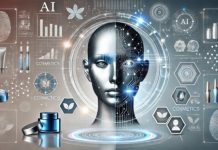In the world of modern technology, artificial intelligence (AI) is becoming increasingly significant in many aspects of business, and recruitment is no exception. AI recruitment is transforming traditional approaches to finding and hiring employees by offering new opportunities for improving efficiency, accuracy, and the overall quality of hiring.
As companies compete to attract top talent, leveraging AI in recruitment has shifted from being a “nice-to-have” tool to a strategic necessity for human resources departments and hiring managers.
Key Takeaways
- AI recruitment automates and optimizes hiring processes, enhancing efficiency and accuracy.
- It uses technologies like machine learning and NLP to improve selection and reduce bias.
- AI recruitment speeds up hiring, benefiting both companies and candidates through faster responses.
- Automated resume analysis and virtual interviews streamline candidate evaluation and scheduling.
- Personalized candidate experiences foster engagement and loyalty, making AI recruitment a strategic necessity.
What is AI Recruitment?
AI recruitment refers to the use of artificial intelligence technologies to automate, streamline, and optimize the recruitment process. This includes a variety of tools and methods such as machine learning algorithms, natural language processing (NLP), predictive analytics, and data-driven decision-making. These technologies are designed to ease the workload of recruiters while simultaneously improving outcomes by ensuring the right candidates are matched with the right roles.
Unlike traditional recruitment, which often relies heavily on manual screening and subjective judgments, AI recruitment leverages data to make evidence-based decisions. For instance, AI systems can analyze patterns in resumes, assess candidate responses, and even predict future job performance, allowing organizations to make more informed hiring decisions. This makes AI not only a time-saving tool but also a powerful asset for reducing hiring bias and increasing fairness in candidate selection.
Benefits of AI Recruitment
Automation of Routine Tasks: One of the most immediate advantages of AI recruitment is the automation of repetitive tasks. AI can handle time-consuming activities such as resume screening, ranking candidates, and scheduling interviews. By automating these functions, recruiters can dedicate more time to strategic initiatives such as employer branding, workforce planning, and building relationships with top talent.
Improved Selection Accuracy: AI can significantly enhance the accuracy of candidate selection. Machine learning algorithms analyze vast datasets, including resumes, work histories, and skill assessments, to identify the best-fit candidates for a position. This data-driven approach minimizes human error and unconscious bias, leading to fairer and more precise hiring decisions.
Speed of Process: Time-to-hire is a critical metric in today’s competitive job market. AI technologies can accelerate the recruitment process, quickly analyzing applications and delivering insights that would otherwise take human recruiters days or even weeks. A faster hiring process benefits both the company and candidates, ensuring that top talent is not lost to competitors due to slow response times.
Enhanced Candidate Experience: AI can also improve the candidate experience by offering personalized and responsive communication. Chatbots and virtual assistants can provide timely updates, answer questions, and guide candidates through each stage of the hiring process. This not only increases candidate satisfaction but also strengthens the company’s reputation as an employer of choice.
How AI is Changing Recruitment
Resume Analysis: AI can process hundreds or even thousands of resumes in minutes, extracting key skills, qualifications, and experiences that align with job requirements. This allows recruiters to focus on evaluating high-potential candidates rather than spending hours manually reviewing resumes.
Conducting Interviews: AI-powered virtual interview platforms can conduct preliminary interviews with candidates, using structured questions and advanced speech or text analysis to evaluate responses. This ensures a consistent and unbiased assessment process while freeing up recruiters to focus on in-depth, final-stage interviews.
Predicting Success: By leveraging historical hiring data and performance metrics, AI can predict a candidate’s likelihood of success within a role or organization. This predictive capability reduces the risk of hiring mismatches and helps companies make smarter, long-term talent decisions.
Personalizing Experience: Modern AI tools can tailor the recruitment experience to individual candidates. For example, AI can recommend relevant job openings, suggest skill development courses, or provide feedback based on candidate preferences and qualifications. Personalized interactions not only improve engagement but also foster loyalty and interest in the company.
Conclusion
AI recruitment represents a significant evolution in human resource management. By automating routine tasks, improving accuracy, speeding up the hiring process, and creating a personalized candidate experience, companies can achieve a more efficient and effective recruitment strategy. Integrating AI into recruitment not only reduces operational costs and time-to-hire but also enhances the quality of talent acquisition, which has a direct impact on business performance and growth.
Today, AI recruitment is no longer simply a trend; it is a strategic imperative. In a business environment where speed, efficiency, and quality are key drivers of success, leveraging AI technologies in hiring processes is essential to remain competitive. Companies that adopt AI recruitment tools gain a distinct advantage in attracting and retaining top talent, ultimately securing their position as industry leaders in an increasingly dynamic workforce landscape.











